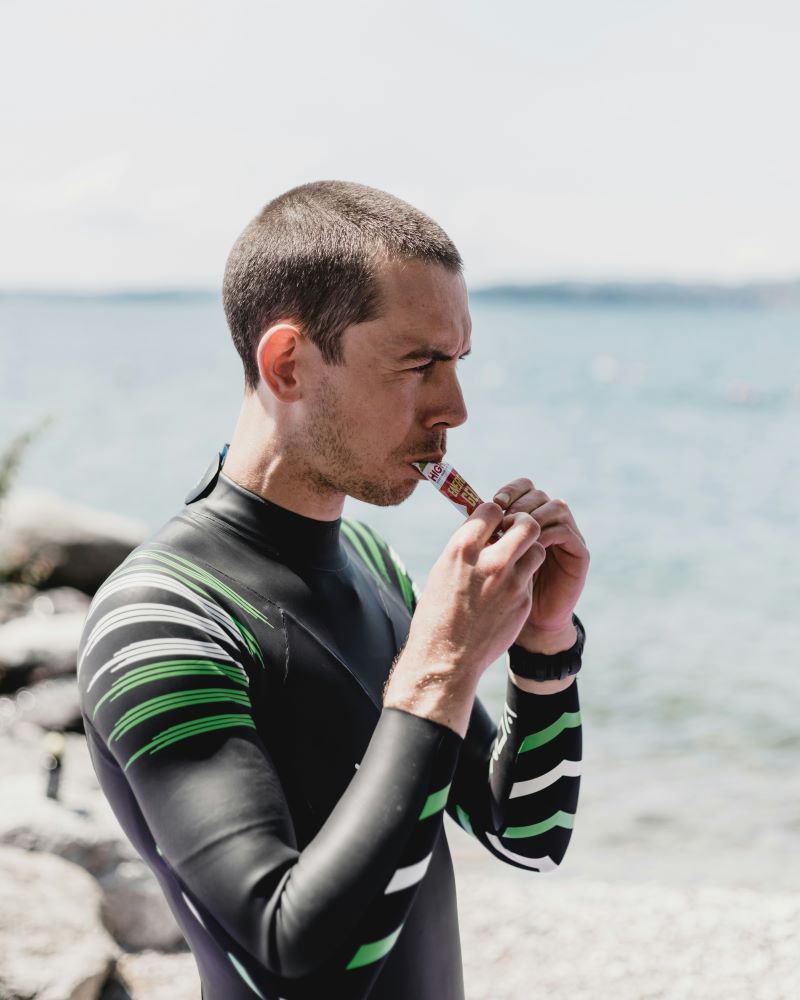Based on the recent review “Triathlon: Ergo Nutrition for Training, Competing, and Recovering” by Miguel-Ortega et al. (2025), here’s a detailed nutrition guide

1. Training Nutrition
Carbohydrates:
- For sessions <60 min: small snack optional; focus on hydration.
- For sessions 60–120 min: 30–60 g carbs per hour (e.g., energy gels, bananas, sports drink).
- For sessions >120 min: up to 90 g carbs per hour using a combination of glucose + fructose for optimal absorption.
Protein:
- 0.25–0.4 g/kg body weight after training to support muscle repair.
- Sources: whey, yogurt, lean meat, eggs.
Fats:
- Moderate fat intake; avoid high-fat foods immediately pre-training to reduce GI discomfort.
Hydration:
- Drink 400–600 ml water 1–2 h before training.
- During sessions > 60 min, aim for 400–800 ml/hour with electrolytes.Κατά τη διάρκεια προπονήσεων 60 λεπτών: 400–800 ml/ώρα με ηλεκτρολύτες.
- Post-training, replace ~150% of fluid lost during exercise over 2–4 h.
2. Competition Nutrition
Pre-race:
- 2–3 hours before: 1–4 g/kg body weight of carbs, low fat, low fiber.
- Small snack 30–60 min before if needed (e.g., energy bar or gel).
During race:
- For events > 60 min: 30–60 g carbs per hour; for ultra-endurance, up to 90 g/hour using multiple carb types.
- Include electrolytes, especially sodium (300–700 mg/hour), to prevent hyponatremia.
Caffeine (optional):
- 3–6 mg/kg body weight 30–60 min pre-event can improve endurance and alertness; test in training first.
3. Recovery Nutrition
Immediate post-session (within 30 min):Αμέσως μετά την άσκηση (εντός 30 λεπτών):
- 1–1.2 g/kg body weight of carbohydrates.
- 0.25–0.4 g/kg protein.
- Example: recovery shake with milk, banana, and protein powder.
Ongoing recovery:
- Balanced meals every 3–4 h including carbs, protein, and fats.
- Replace fluids and electrolytes lost during training or racing.
4. Practical Tips for Implementation
- Test all nutrition strategies in training, not just on race day.
- Keep portable carbs and electrolytes for long sessions.
- Adjust intake based on temperature, humidity, session intensity, and personal tolerance.
- Use a small notebook or app to track intake, hydration, and GI response.
Always here to support you,
Sports Excellence Team

